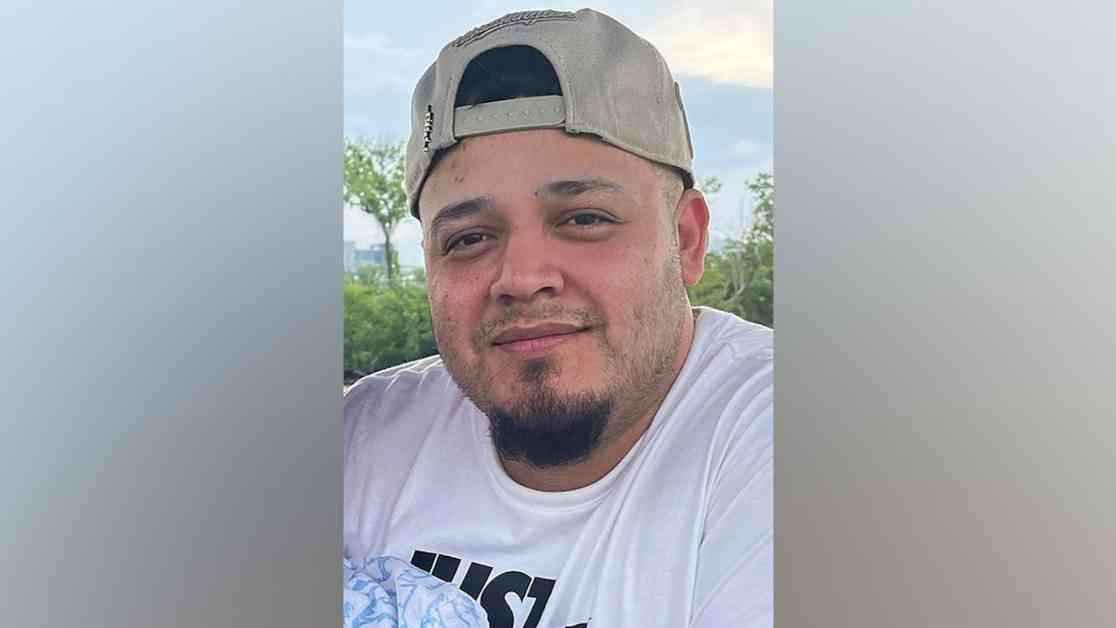A Maryland Man’s Fight for Justice: Deportation Error and MS-13 Allegations Disputed
In a recent turn of events that has captured national attention, the wife of Kilmar Armando Abrego Garcia, a Maryland man who was mistakenly deported to El Salvador, is speaking out against the Trump administration’s claims that her husband is associated with the notorious criminal gang MS-13. Jennifer Vasquez, in an emotional interview with ABC News, vehemently denied the allegations, painting a picture of a loving father and dedicated husband who was wrongfully targeted.
Despite having legal protection against deportation due to his past experiences with political violence in El Salvador, Abrego Garcia found himself in the midst of a bureaucratic error that led to his transfer to the CECOT mega-prison in El Salvador. Vasquez’s world was turned upside down when she discovered her husband’s whereabouts through local news coverage, leaving her devastated and confused.
The Heartbreaking Journey of a Family Torn Apart
The saga began when Abrego Garcia was stopped by ICE officers and informed of a sudden change in his immigration status. Detained and later transported to a detention center in Texas, he was ultimately sent back to El Salvador on March 15, along with a group of Venezuelan men accused of gang affiliations. The ordeal has left Vasquez and their 5-year-old child grappling with uncertainty and longing for the return of their beloved husband and father.
As Vasquez bravely navigates the challenges of raising an autistic, nonverbal son in her husband’s absence, she remains haunted by the unanswered questions surrounding his well-being and eventual return. The emotional toll of the separation is palpable, as she describes her son’s poignant attempts to seek solace in his father’s memory by cherishing his work shirts for comfort.
A Legal Battle Unfolds Amidst Desperation and Hope
In a bid to bring Abrego Garcia back home, U.S. District Judge Paula Xinis issued a directive for his return by a set deadline, only to have the proceedings complicated by a temporary administrative stay from Supreme Court Chief Justice John Roberts. The legal wrangling underscores the complexities of the case and the urgent need for resolution in the face of mounting anguish and uncertainty.
The Trump administration’s assertion that Abrego Garcia is unwelcome in the U.S. due to alleged ties to MS-13 has been met with fervent opposition from his family and supporters, who adamantly refute the claims and emphasize his character as a devoted family man. The intersection of immigration policies, administrative errors, and personal tragedies has cast a harsh spotlight on the human cost of systemic failures and political agendas.
As the legal battle continues to unfold, Vasquez’s poignant plea for her husband’s safe return echoes the sentiments of countless families caught in the crossfires of immigration enforcement. The narrative of Kilmar Armando Abrego Garcia serves as a stark reminder of the intricate web of challenges faced by immigrants and their loved ones, underscoring the need for compassion, clarity, and justice in a system fraught with complexities and consequences.
The fight for justice and reunification is far from over, as the fate of Abrego Garcia hangs in the balance, emblematic of a broader struggle for dignity, fairness, and humanity in the face of adversity and injustice. The story of this Maryland man and his family stands as a testament to the resilience and courage of individuals navigating the turbulent waters of immigration enforcement and legal battles, shedding light on the human stories behind the headlines and rhetoric that shape our perceptions and policies.














